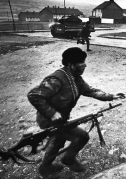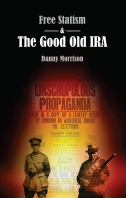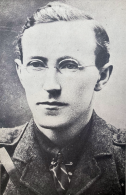Bodenstown 1922
18 June 2022

This Sunday 19 June 2022 Irish Republicans gather at Wolfe Tone’s grave at Bodenstown as we we have done for many decades. Almost exactly 100 years ago on Tuesday 20 June 1922 Republicans were at Bodenstown just a few days before the Civil War began with the Free State bombardment of the Four Courts. Free article
Bodenstown – milestones on the journey to Tone’s Republic
17 June 2022

Following his death in British custody in the Provost Prison, Arbour Hill, Dublin, on 19 November 1798, Theobald Wolfe Tone, Irish revolutionary leader, was buried in the family grave in Bodenstown Churchyard, just outside the village of Sallins, County Kildare. Free article
June 1922 - the Pact, the Election and British pressure for Civil War
13 June 2022

Since the narrow Dáil vote for the Treaty in January 1922 and the split in the IRA in March, there were ongoing efforts to prevent civil war and to find a basis for unity on both a political and military basis. Free article
Centenary of the Special Powers Act 1922
19 May 2022

The Special Powers Act, one of the most repressive pieces of legislation ever enacted anywhere, was extensively used for 50 years by the Unionist regime in the Six Counties. Free article
1916 the main battles and major events
16 April 2022

Éirí Amach na Cásca – The 1916 Easter Rising - Map and description of the main battles and major events Free article
1916 Chronology of events
16 April 2022

Éirí Amach na Cásca – The 1916 Easter Rising - First published in Éiri amach na Cásca, The Easter Rising 1916, by Republican Publications, April 1986 Free article
IRA occupation of the Four Courts
14 April 2022

100 years ago on 14 April 1922 the anti-Treaty IRA occupied the Four Courts in the centre of Dublin. The pro-Treaty Free State Army, then being built up, had already occupied evacuated British Army barracks in the capital, including Beggars Bush which they made their headquarters. Free article
The mandate that never was
7 April 2022

It has long been argued that the General Election of June 1922 was a ringing endorsement by voters in the 26 Counties for the Treaty and the Free State. But was that really the case, and did the election give the Free State government what it later claimed as a mandate to forcibly suppress their Republican opponents? Free article
Operation Motorman – Another failed British strategy
7 April 2022

One of the largest military operations undertaken by the British Army since the end of the Second World War was mounted across the Six Counties on 31 July 1972. Danny Morrison writes 50 years after on the both the background to and days of what British military commanders codenamed ‘Operation Motorman’. Free article
Remembering the forgotten Denis Holland
7 April 2022

One of the joys of historical research, arguably the greatest joy, is the discovery of people buried in the thicket of the past who have not been given their due. So, I am delighted to exhume Denis Holland, who surely merits a prominent place in the republican pantheon. Free article
'Good Old IRA' challenges Partition politics
7 April 2022

In the mid-1980s when I was in the Long Kesh prison camp, in the H Blocks, I found myself engaged in a conversation with a fellow Republican POW in which we assessed the task facing the Republican Movement at that time. Free article
I can still hear her voice
7 April 2022

‘On Dangerous Ground – a Memoir of the Irish Revolution’ by Máire Comerford, edited by Hilary Dully, had a special launch in Sandyford, County Dublin at the end of March. Máire lived in the village for many years and some of her old friends and neighbours attended the launch which was organised by the local Máire Comerford Sinn Féin Cumann and publishers Lilliput Press and was hosted by Sinn Féin representative Shaun Tracey. Speakers included Hilary Dully, Mary Lou McDonald, and historians Liz Gillis and Tim Pat Coogan. Attendance included Proinsias Ó Rathaille, grandson of The O’Rahilly, and Evelyn Campbell, who sang her song ‘Fenian Women Blues’. Rita O’Hare got to know Máire when she came to live in Dublin in 1972. Rita is a lifelong Republican activist and former political prisoner, whose roles within the Republican Movement included editor of An Phoblacht, Sinn Féin Director of Publicity, and the party’s North American representative.Here, she pays a personal tribute to Máire. Free article
The fall of Stormont 1972
28 March 2022

After over five decades in existence with its in-built Unionist majority, described by its founder James Craig as “a Protestant parliament and a Protestant state”, the Parliament of ‘Northern Ireland’ at Stormont reached the point of collapse at the end of March 1972. Free article
The IRA Convention of March 1922
25 March 2022

The period after the narrow Dáil vote in favour of the Treaty in January 1922 saw division between the pro and anti-Treaty sides widening but also many efforts to maintain unity and to prevent armed conflict. Free article
Orange state terror - the Cromwell Club
23 March 2022

One hundred years ago the new state of ‘Northern Ireland’ was being consolidated by the Unionist Party, the Orange Order and the British crown forces by means of sectarian terror against the non-unionist population, especially in Belfast. Free article
Page 6 of 7


